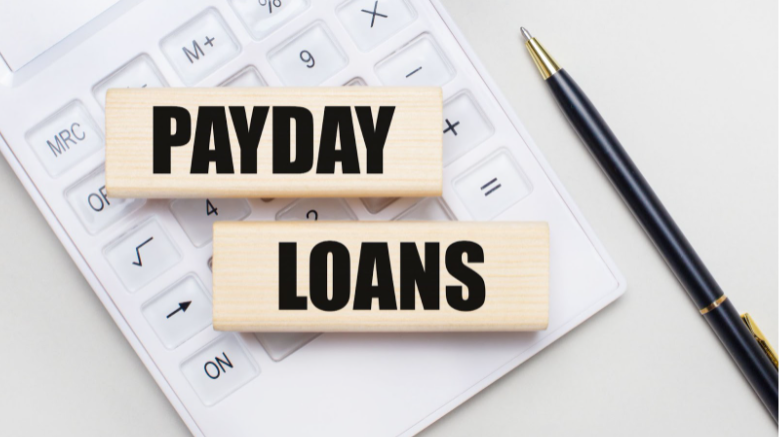
What is a Payday Loan and How Does it Work?
Life happens and sometimes we can’t cover the costs. If you’re in between paydays you might wonder where you’ll get the cash from to cover your emergency.
A personal loan may be an option, but it can take a few days or weeks to fund. The same is true of a mortgage refinance, even if you have equity in your home.
This causes many people to turn to payday loans. They sound like a great option – you get funded right away and can cover your emergency, but they have a lot of downsides.
Here’s what you must know.
Payday Loans – What are They?
Payday loans are loans for the time in between paydays. You take the money out now and usually pay it back by your next paycheck, although in certain provinces you have up to 62 days to pay it back. These include:
- Alberta
- British Columbia
- Manitoba
- New Brunswick
- Ontario
Either way, you pay interest and fees to borrow the money and the costs are usually pretty high.
How to Qualify for Payday Loans
Unfortunately, it’s rather easy to qualify for payday loans. If you have a current bank account, stable form of income, and a permanent address, you likely qualify.
They don’t pull your credit or have debt-to-income ratio qualifications. They simply require you to provide proof that you can pay the loan back on your next payday.
How Payday Loans Work
You apply for a payday loan with a private lender or company. They evaluate the information you provided and if approved, they fund your loan right away. They usually send the money directly to your bank account. Always ask how they fund the loan, though, as some fund a prepaid card which may have more fees to activate and use.
To pay the loan back, you must provide the lender with permission to withdraw the funds directly from your checking account on your next payday. If not, you must provide a post-dated check for your payday that pays the loan back.
If you can’t pay the loan back in full and on time, you will incur more fees and interest which inflates the cost of the loan.
The Consequences of not Paying a Payday Loan on Time

Each lender has different consequences for not paying a payday loan on time. The consequences may include any of the following.
Your Bank or the Lender may Charge Fees
If the payday lender tries to withdraw the loan amount from your account and you don’t have enough funds, the lender and your bank may charge you fees. The lender may charge a non-payment fee, plus interest continues to accrue. Your bank may charge a fee for the administrative work involved in dealing with a transaction you can’t cover.
The Lender may Send your Account to Collections
Some lenders immediately send payday loans to collection agencies if you don’t pay on time. This could damage your credit score and your chance of getting any future credit. Plus, collection agencies usually aren’t nice in their tactics to get their money.
The Lender could Garnish your Wages
Depending on the amount of the loan, the payday lender may try to garnish your wages to get their money back. They will have to go to court to get a judgment filed against you, but they do this often to get their money back.
The Lender could Sue You
The lender could take you to court for breach of contract. In court, you could lose assets in order to pay your debt. This could include personal property or even your bank account.
Payday Loan Costs
Payday loans aren’t cheap. It’s not an exaggeration to say that they charge 500 – 600% interest. That’s the equivalent of $15 to $20 per $100 you borrow. If you were already living paycheck to paycheck it may feel impossible to pay the loan back, putting you further into debt.
Questions to Ask a Payday Lender

If you’ve exhausted all other options to get money including asking friends or family, taking a cash advance on your credit card, or working with the creditor to ask for more time, make sure you ask payday lenders the following questions before taking a loan.
- What is the loan’s total cost?
Make sure the lender includes all interest and fees, including any potential fees if you can’t pay it back on time.
- How do you pay the loan back?
Some lenders require you to give them access to your checking account. Others allow a post-dated check or other methods. Ask specifically how the loan must be repaid.
- How long by law do you have to pay the loan back?
Most payday loans are due by the next payday, but not in all provinces. Ask by law how much time you have to pay it back without penalty.
- How will you receive the funds?
Ask if they will deposit the funds in your checking account directly or if it will be cash or a prepaid card. If it’s a prepaid card, ask what fees you’ll incur to use the funds on the card.
- Ask what would happen if you can’t pay the loan back right away?
You shouldn’t take a loan you can’t repay according to its terms, but always know the worst case scenario.
Final Thoughts
If you’ve taken out a payday loan and can’t repay it, you’ll likely feel like you’re drowning in debt. The collection efforts of payday lenders and collection agencies can be exhausting and overwhelming. Let the experts at EmpireOne Credit help.
Our experts can help you understand your options, and help you find ways out of the debt. We explore all options available to you, letting you know the total cost and what it might do to your credit.
We have helped thousands of people in the same situation. Don’t drown in debt alone, let us help you figure out a way out.





